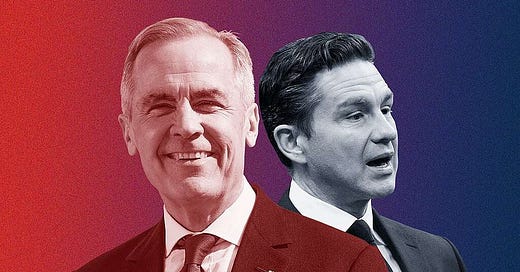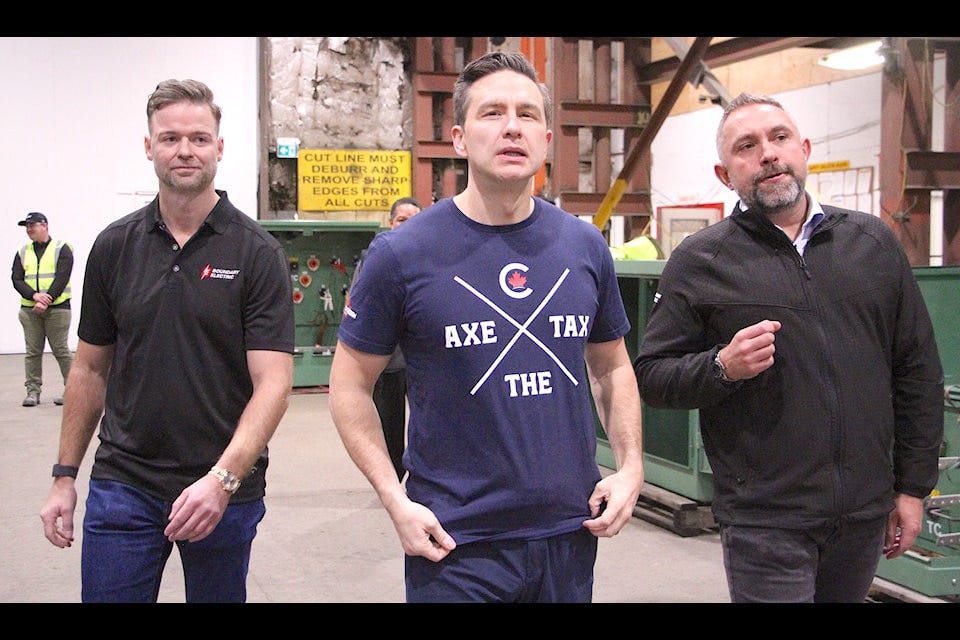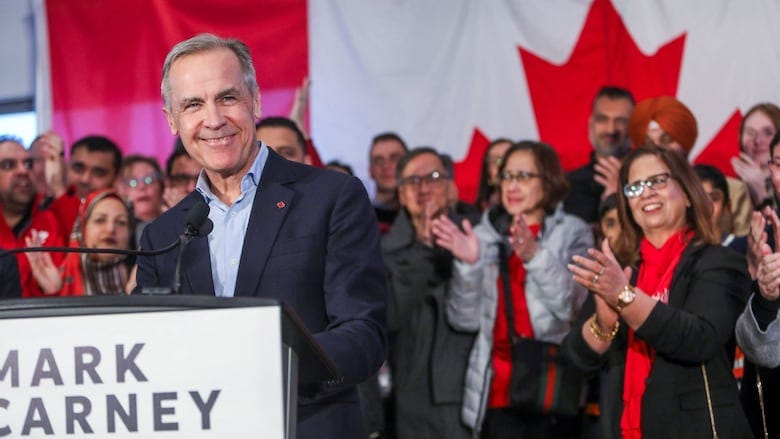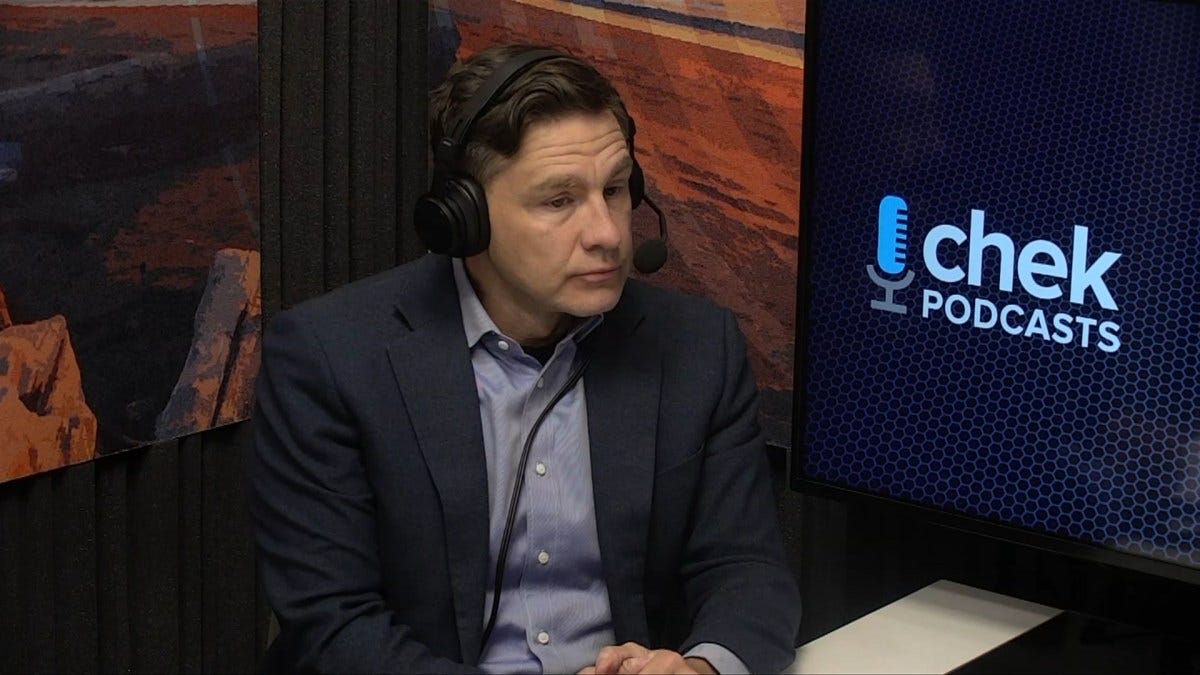Leadership Without Agility: The Strategic Limits of Pierre Poilievre - Why the CPC’s January 2026 Leadership Review Must Be Real
After his election loss, Pierre Poilievre turns inward - launching a podcast and sticking with the same team instead of facing mistakes. It reveals a flaw: a leader built for control, not agility.
When political leaders lose elections, the reasons are supposed to be clear. Yet for Pierre Poilievre and the Conservative Party of Canada, the clarity of defeat in the 2025 federal election has been distorted by deflection, denial, and a persistent refusal to engage in self-examination. With the Conservative leadership review scheduled for January 2026, the party faces a defining choice that will set the stage for its chances in the next election: real review or rubber stamp.
Pierre Poilievre lost. Not only did he fail to form government, he failed to hold his own seat. This isn't just symbolic; it's a serious rejection from the people who know him best. In his own riding, constituents were given the rare chance to elect their sitting MP as Prime Minister, and they declined. That outcome demands more than spin, it demands accountability.
Instead, we’ve seen deflection. Poilievre has simultaneously claimed victory (in the form of popular vote gains) and defeat (attributed to unfair tactics by the Liberals, NDP, and media). It’s a contradictory narrative more common in U.S. politics than in Canada, and it’s deeply unbecoming of someone who wants to be Prime Minister. He’s refused to meaningfully acknowledge what he and his team did to contribute to the loss. Not to his caucus and not to voters. That silence speaks volumes. It suggests not just self protection, but denial. And denial is not a strategy.
Since the election, the party has functioned as if nothing happened. The front bench has not changed. Key strategists like Jenni Byrne remain, despite criticism of their outdated, combative messaging and top down control that has failed repeatedly. The tone and structure of the party remain frozen, unwilling to adapt or reflect. The leadership team is running on muscle memory - as if the election were a glitch, not a lesson.
The CPC didn’t lose in a landslide - it lost narrowly. But in politics, narrow losses matter. The refusal to pivot or update the playbook has consequences, and Poilievre’s inability to evolve in response to failure is a dangerous trait in a party leader. The party’s push back to the base is that the Trump tariffs were an unforeseeable disruption and that Carney opportunistically used them to scare Canadians. But that excuse is, in effect, a tacit admission from Poilievre and his team: they require narrative control and predictable conditions in order to win. Neither of those luxuries exist in the current geopolitical climate.
What they fail to grasp is this: the Liberals, and Carney in particular, found out about the Trump tariffs at the same time Poilievre’s team did. The difference? Carney seized the moment, crafted a ballot question, and delivered a response that shaped public perception. Poilievre and Byrne hesitated for months. They didn't pivot, they didn’t counter, and they allowed the Liberals to define the battlefield.
I’m not suggesting Poilievre should have out-fearmongered Carney - that would have backfired. But what was required was a strategic counter-question that reoriented voter anxiety back onto the Liberals. He needed to be nimble, ruthless, and imaginative in the face of a moving target. He wasn't.
And now, by framing the election loss as a “one-off,” Poilievre signals that he still doesn’t understand why he lost. He continues to operate with blinders on - unable or unwilling to acknowledge his core vulnerability: an inability to pivot under pressure. He underestimated Carney once. He’s underestimating just how volatile the next campaign will be - and in doing so, he’s signalling that he plans to enter it carrying the same strategic handicap as before: his inability to adapt when circumstances change around him.
The Liberals, on the other hand, know his kryptonite. They understand that Poilievre is stubborn, inflexible, and dependent on strict message control. They knew this well before the last campaign, which is precisely why they engineered a fast-paced, high-volatility race designed to exploit that weakness.
They made the campaign short.
They pulled Trudeau late.
They launched a rapid leadership race.
They dropped the carbon tax.
They changed the ballot question - from the economy to Trump - without warning.
One disruption after another, they hurled change at him, knowing he lacks the agility to get in front of it.
Poilievre still hasn’t shown that he can adapt. And unless he recognizes this strategic vulnerability, he’ll walk into the next election carrying the same burden. As Dr Phil likes to say, you can’t change what you don’t acknowledge. And Poilievre doesn’t seem willing to acknowledge what may well be his fatal flaw. Carney won’t do him the favor of sidestepping his kryptonite in the next election. If Poilievre refuses to acknowledge this - both to himself and to his caucus - then he’s politically useless. A leader who can’t self-diagnose his most exploitable flaw is a liability, not an asset.
Another argument often raised is that the Conservative Party has changed leaders three times in six years. But here’s the more important truth: the party has also lost three times in six years. And each of those defeats came with a clear recognition - both inside and outside the party - that going into the next election with the same leader would almost certainly produce the same result. So the question isn’t whether the CPC has changed leaders too often - the real question is whether it’s chosen the right leaders at all. Three changes in six years may sound like instability, but what it really reflects is a party still searching for someone who can win - and failing to find them. The solution to that isn’t to stop looking; it’s to make better choices. The party doesn’t owe anyone another try. It owes its base a credible path to government.
That means being willing to make leadership changes when necessary - not keeping leaders who may lose again simply because past replacements haven’t worked either. Failure to win should not be met with either blind loyalty or reflexive turnover. What’s needed is discernment - not sentimentality, not exhaustion, and not inertia.
Meanwhile, the focus has shifted from the Conservative message to the "Poilievre brand."
Instead of reconciling with voters or laying the groundwork for a coherent path forward, Poilievre has pivoted toward influencer-style shout-outs and launched a podcast. It appears less of political regrouping and more of a personal rebranding effort. It’s hard to imagine any other party leader losing an election, losing key seats - even his own - and responding not by addressing the base or the caucus, but by launching a media platform. It’s image repair before introspection; optics before obligation.
And the podcast itself only reinforces the broader problem. It’s more of the same: Poilievre operating within a controlled, comfortable space - a studio where he sets the tone, chooses the guests, and never faces a question he hasn’t prepared for. No hostile press, no rival narratives, no sudden curveballs. Just Pierre, performing where he performs best: in a tightly structured, stage-managed environment tailored to his rhythms and messaging discipline.
There’s nothing inherently wrong with leveraging media - but campaigns aren’t podcasts. Elections are live terrain. They move fast, shift suddenly, and resist scripting. And if the last campaign proved anything, it’s that Poilievre struggles the moment external events take control of the narrative. When the Liberals changed the ballot question midstream, when Trudeau stepped aside and Carney jumped in, when the Trump tariff chaos broke out - Poilievre didn’t adapt, he froze. His team didn’t pivot. They waited for the story to come back to them. It never did.
So the podcast is more than a platform - it’s a metaphor. A soundproof room where nothing changes unless he changes it. That’s not strategy, that’s a tell. And it raises the most important question for Conservatives: if your leader only thrives in controlled settings, what happens when he loses control again?
Make no mistake: Carney beat him - convincingly. Whatever external factors one wants to point to (Trump tariffs, Liberal fear campaigns, NDP strategy), the reality is that Carney navigated a complex, hostile electoral environment and emerged on top. More importantly, Carney seems likely to do it again. Poilievre's approach, frozen in time since 2022, is no match for an opponent who is quickly learning and adapting.
The leadership review in January 2026 cannot be treated as ceremonial. It must be a real test of Poilievre’s ability to course-correct, rebuild, and re-earn the party’s trust. Conservatives don’t need loyalty to a losing brand - they need leadership with the capacity to learn, to change, and to win. Poilievre has shown little interest in doing any of those things.
Accountability is not disloyalty. It is essential. If the CPC cannot conduct a rigorous leadership review now - after an election loss, a lost seat, and a continued decline in voter trust - then it has little moral authority to claim it represents a serious alternative to the Liberal government.
January 2026 must not be a coronation. It must be a reckoning.






